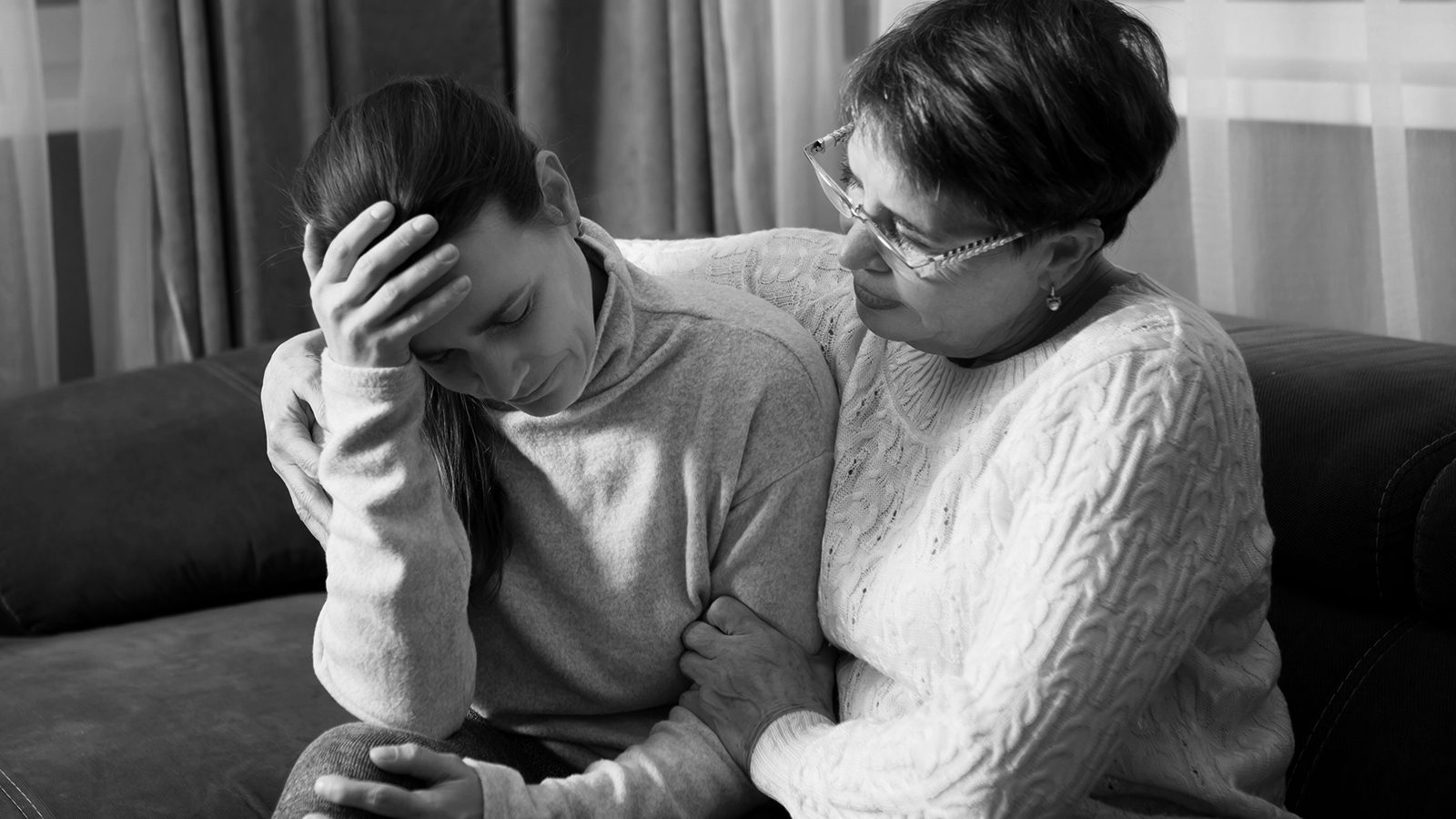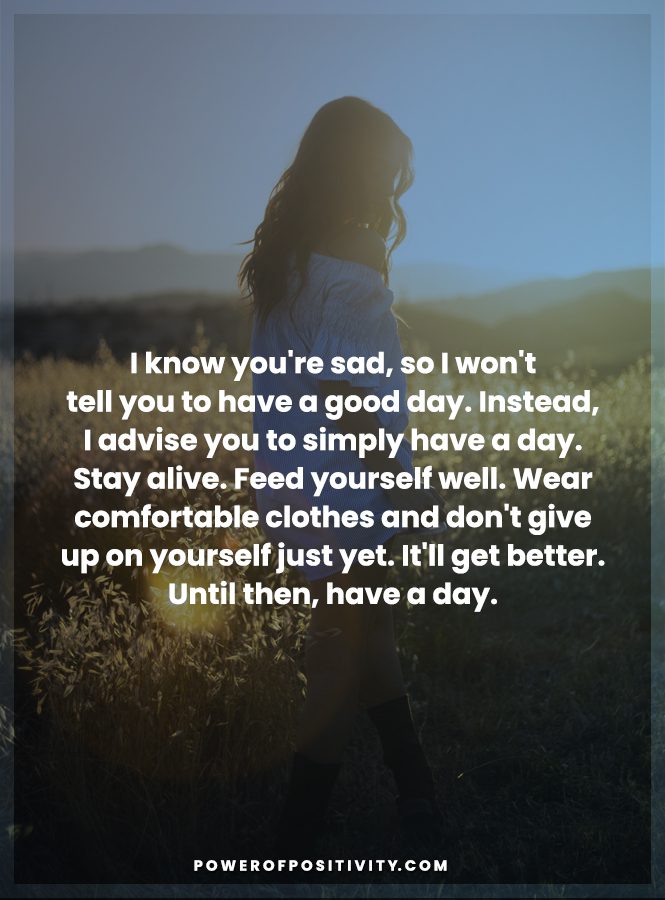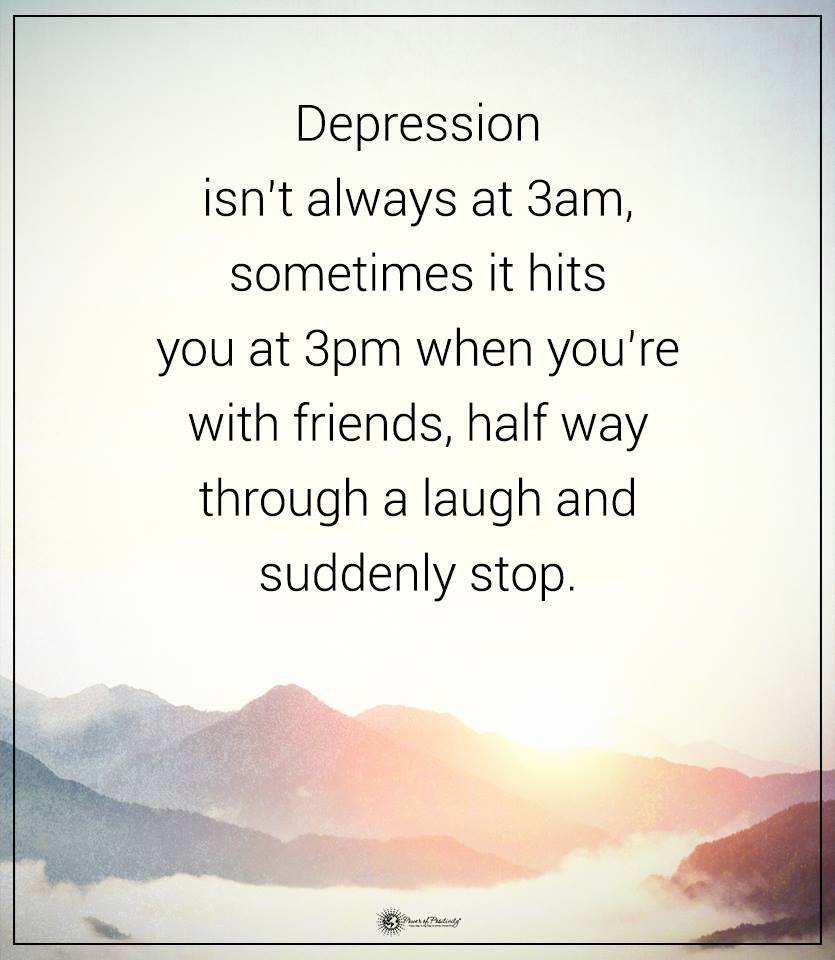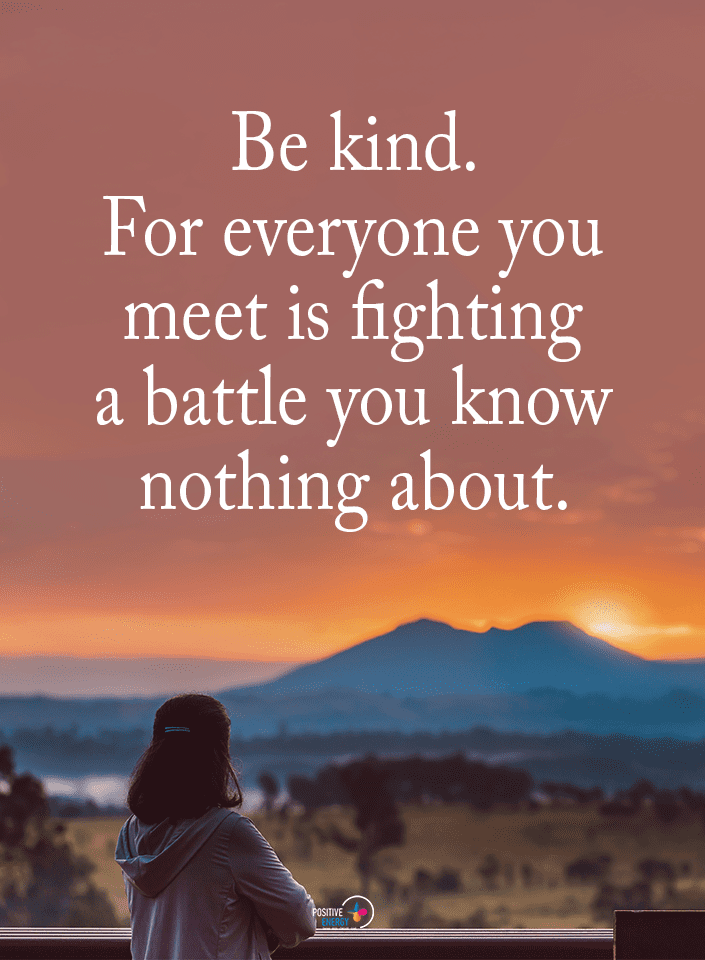Telling someone with depression to have a good day is so customary that you’re never going to think twice before saying it. It’s so natural that it has become a reflex for most people. You say it and go about your day without giving the interaction a second thought. That said, you might be surprised to hear that you should never wish someone depressed a good day.
But it’s not just this expression that can sometimes be a problem. It’s the fact that some people believe that if someone wants to have a good day, they can do so, which is not even close to how life works for many people.
Depression is one of the most common mental health issues. Millions of people around the world struggle with it. And, what’s worse, many people don’t ever get diagnosed. This happens for many reasons, one of which is people’s calm, even judgmental, attitude toward mental health issues. A few decades ago, people believed that mental health issues were non-issues.
They thought that people claiming to be struggling mentally were seeking attention. But, of course, as we now know, mental health issues are serious problems. But most young and even middle-aged people have been raised by parents who didn’t believe in things like therapy. And some of these parents even bad-mouthed things like depression.
Many people grew up in an environment that shamed those struggling with mental health issues. And older adults are even more likely to hold on to these unfounded beliefs than younger people. The outcome of this apprehension towards getting any psychological help means that many people don’t even get diagnosed, much less go to therapy. So, people wish others a good day without knowing the damage this simple phrase can do.
What Is Depression?
Because of how society approaches mental health, most people don’t even know what depression is. They don’t understand how paralyzing it feels and how much it can affect someone’s ability to go about their day. Some people believe depression isn’t a thing and mischaracterize it as self-pity. But, of course, that’s not even close to the truth.
Depression is a very real and serious issue. And it’s not just when you feel a little sadder than usual. Sure, depression causes sadness, but that’s just part of it. The psychological terminology for what’s colloquially known as depression is clinical depression or major depressive disorder. This is a mood disorder that affects the way people feel, think, and even to handle daily activities.
To be diagnosed with clinical depression, the symptoms must persist for more than two weeks. There are more types of depression than just this one, such as seasonal affective disorder. This type is triggered by the changing seasons, typically starting in the fall. It usually goes away around springtime. But most people struggle with clinical depression.
Symptoms of Depression
This disorder has many symptoms, ranging from mild to severe. Depressed people have persistent feelings of sadness, anxiety, or even emptiness. They can feel hopeless and tend to be more on the pessimistic side. Lack of energy and feelings of fatigue are also common. Plus, many depressed people lose interest in hobbies or activities that used to bring them joy. Some of the worst psychological symptoms are feelings of guilt and worthlessness.
Given that depression leaves people unmotivated to the point where they can’t find a reason to get out of bed, this isn’t surprising. Feeling helpless only adds up to the guilt depressed people experience. But often, there isn’t even a reason for them to feel guilty.
They also struggle with making decisions and even remembering things. But some symptoms are even physical, such as aches, headaches, or cramps that have no clear cause and don’t go away with treatment. And the worst symptoms are suicidal thoughts or even suicide attempts.
Causes of Depression
The causes of depression range from genetic to environmental. For example, a history of depression in your family can increase your chances of developing depression significantly. Some environmental causes are instances of abuse. If you were raised in an abusive family or even if friends or a partner mistreated you, that increases the chances of you developing depression.
Stressful events and traumatic experiences, such as severe accidents, can also be risk factors. Even your personality can put you at risk. For example, introversion makes you more likely to suffer from loneliness, which can lead to depression. Alcohol and drug consumption, especially when there’s an addiction involved, can also be a cause. Some illnesses, such as cancer, also lead to depression.
Luckily, this disorder can be treated through medication and therapy. Still, there needs to be a desire on the part of the struggling person to get better, as shoving medication down your throat won’t do the trick. To ensure you won’t spiral into another depressive episode, you must practice self-care and self-compassion. And it always helps when the people around you are supportive and treat you kindly.
Why Never Tell Someone Who’s Depressed to Have a Good Day
1. It Makes the Depressed Person Feel Guilty
When someone depressed is told to have a good day, that will impact them in a way you might not even realize. If someone’s having a horrible day, these words will only make them feel ungrateful and guilty. You might not be aware of their struggles, but that doesn’t mean they will think about that. Logically, you meant no harm.
But depression doesn’t follow logical patterns. When someone can’t fulfill something that’s such a simple task for most people, they will feel like there’s something wrong with them. They’ll wonder, if everyone can go about their lives and have fun, why can’t they do the same thing? Of course, there’s nothing easy about being happy when you’re battling depression.
But the message will unavoidably come across wrong. It’s not so much about the phrase as it is about the feeling it evokes. It’s a reminder that they are struggling with something that doesn’t allow them to be happy. And that there’s nothing they can do to change their mood instantly.
This feeling of helplessness gets to them quickly and makes them feel like it’s their fault for feeling sad. Instead, if you know someone is depressed, you should approach them with more care and kindness. Ask them if they need anything, and let them know you’re there.
2. It’s Careless of the Feelings of the Depressed Person
Even though there’s usually no ill intention behind wishing someone a good day, it doesn’t always come across that way. Even if you don’t want to provoke pain, you’ll do that. For someone struggling, it’ll seem like you’re too focused on pleasantries to notice something eating them up inside.
Even if it doesn’t affect them, you should still aim to be more careful around people. You never know what’s going on in someone’s life, and it’s much nicer to ask someone about their day than to assume that things are going swimmingly.
Even if you don’t know someone, it’s much kinder to take a few moments to ask them how they are doing and if they are holding up well. Of course, a mere stranger will almost always tell you they are fine, even if they aren’t. But just the fact that you asked means so much more to them than you could ever imagine.
When you’re talking to someone you know, especially if you know they are depressed, it’s even more important to be careful with your words. So, instead of wishing someone a good day, telling them goodbye is always safer. Especially since asking them about their day and letting them talk is much more important than how you greet them.
3. It Takes Your Focus Off the Issue
This is only true when you are addressing someone you know. For example, when you talk to a depressed person, you might be tempted to be cheery and light. But that’s not even close to what they need from you. More importantly, you can’t ever know what a depressed person needs from you.
And it won’t do you much good to assume. The best way to help someone is by asking them what they need. Even though this might seem farfetched, when trying to be light and cheery, you’re avoiding the serious subjects. By avoiding the darker topics, you’re ignoring the issues at hand. And this only makes you feel better when you haven’t done your part to help. But, of course, that doesn’t mean you are doing it intentionally.
But subconsciously, when you wish someone a good day, you feel like you did your duty. Then, you can go on with your life without giving the interaction a second thought. But you shouldn’t feel content with just throwing around niceties. If you care about someone, you should offer your full support. This means that sometimes, you must ask some questions and assure others you are there for them.
Final Thoughts on Why to Never Tell Someone Who’s Depressed to Have a Good Day
Don’t take this too literally, and stop wishing people a lovely day altogether. It’s still an excellent way to say goodbye to someone without being so cold and straightforward. It shows that you care enough to want the other person to have an enjoyable rest of the day.
But you must be careful and aware of who you’re talking to. If you’re telling this to a depressed person, the outcome might be questionable. Depressed people constantly struggle to be happy and excited about their day. So, when you wish them a good day, you might trigger some of their fears. Even if you don’t mean to, you could make them feel guilty and out of place.
Plus, it’s careless, especially if you’re unsure how the other person will react to this greeting. If you want to help them, offer your support and listen. Don’t just use nice words to make you feel like you’ve done your duty. It’s better to keep your goodbye neutral and focus on being kind to them as they need you to be.

















 Community
Community

